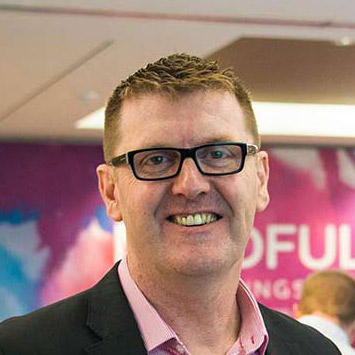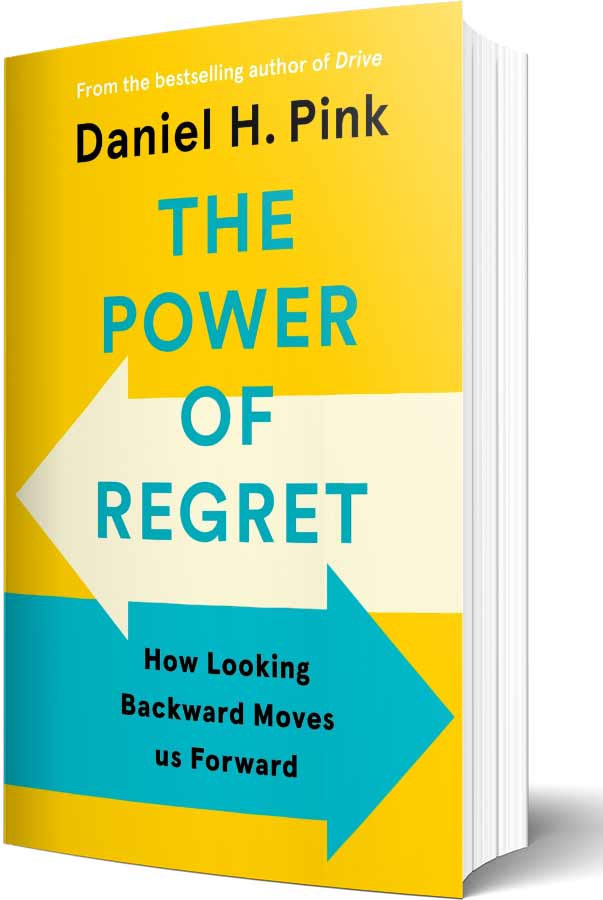The Power of Regret
How Looking Backward Moves Us Forward
To live with no regrets is arguably the most popular default position for one’s philosophy for life. This universal proclamation is so strong, that people around the world tattoo “No Regrets” on their body to declare to the world, their ‘anthem for a way of living’. Ironically, later in life, they typically, regret getting their permanent ‘no regrets tattoo!
Daniel H. Pink in his latest book and research into regrets not only explores the rich and impactful world of regrets we all have but debunks living with ‘no regrets’ as a way of life.
“Regret is not dangerous or abnormal, a deviation from the steady path to happiness. It is healthy and universal, an integral part of being human.”
Pink is an American author of seven books, five of them New York Times bestsellers. From 1995 to 1997 Pink was the chief speechwriter for Vice President Al Gore.
I first came across Pink in 2014 with his now famous TED talk on ‘the puzzle of motivation’ and subsequent book Drive, both that I highly recommend you watch and read.
Pink’s latest book The Power of Regret was released in early 2022 and I love it.
I believe that Pink’s global research into regrets is ground-breaking and something vital that we all need to examine as to what our past regrets can teach us about being fully human.
While I was reading Pink’s book, I recalled so many of my past regrets (be warned!) while simultaneously having many ‘regret epiphanies’, such as; we need to give this important topic more attention, regrets need to be more openly explored and discussed, we need to stop treating regrets as an embarrassing secret or something that we must simple endure alone.
The Negative Force of Regrets
Here’s the kicker with regrets, they are unpleasant and emotionally overwhelming. Regrets require us to look backwards and are incredibly uncomfortable to address because what distinguishes regrets from life’s disappointment is personal responsibility.
As Pink states, ‘disappointments exist outside of our control’, whereas ‘regrets, in contrast, are your fault’. The brutal and honest distinction is that we are responsible for our past regrets.
As Pink states, regrets also disturb the credo of ‘forget the past – seize the future’. Any attempt to address your regrets, Pinks says can appear to be a ‘toxin in the bloodstream of happiness’ where you need to take responsibilities for your past mistakes. It is no wonder we often react in dysfunctional ways to our regrets.
Pink also states, “Americans are over-indexed on positive emotions. We feel like a good life is a life devoid of any kind of pain and discomfort, and we’re wrong.” This pursuit of constant happiness in most western societies without learning from past discomforts and mistakes is ironically a recipe for unhappiness.
When left unexamined, we typically suppress any feelings from our past regrets, which leads to deluding ourselves and acting out in dysfunction ways.
Alternatively, we overindulge our negative feelings from our past mistakes and wallow in embarrassment that leads to despair. Both are ugly options!
“Too much negative emotion,
of course, is debilitating.
But too little is also destructive.”
The transformational alternative Pink argues convincingly, is to look backwards at our regrets, acknowledge that regrets make us human and then leverage the lessons learnt from our regrets for better decisions, improved future performance and importantly to look for a deeper meaning.
World Regret Survey
To reclaim regrets and gain insight into how universal and powerful regrets are, Pink conducted his own World Regret Survey the largest sampling of attitudes about regrets to date. Where he collected regrets from more than 16,000 people in 105 countries.
Pink has cleverly distilled these global results into four core regret categories:
- Foundation Regrets –
“If only I’d done the work.”
Foundational Regrets arise from our failures of foresight and conscientiousness. Such as, I regret not looking after my health, my wellbeing, my finances, my education, not building a stable platform for my future life, etc. - Boldness Regrets –
“If only I’d taken the risk.”
Boldness Regrets arise from the failure to plan ahead, to work hard, and to follow through. Such as, I regret not speaking up, not taking a chance, not being more adventurous, not revealing my sexuality, not asking them out on a date, not experiencing more than an ordinary life, etc. - Moral Regrets –
“If only I’d done the right thing.”
Moral Regrets arise from not doing the right thing. Such as, I regret being unfaithful, bullying that kid at school or colleague at work, stealing money, not telling the truth, not being more kind, more faithful, etc. - Connection Regrets –
“If only I’d reach out.”
Connection Regrets arise from the human need for love and strong relationships. Such as, I regret letting friends drift away, becoming estranged from family members, not saying ‘I love you’ enough, not working on my close relationships, etc.
Now that we understand these four universal regrets, Pink compels us to use them as a ‘photographic negative’ to lead a good life moving forward.
How Looking Backward Moves Us Forward
By understanding what people universally regret the most, we can understand what the four fundamentals need that we value the most in life and that is ‘Stability, Growth, Goodness, and Love’.
“Regret offers us the ultimate redemption narrative.
It is as powerful and affirming as any positive emotion.”
Regrets done well lead to a better future you and can help us meet these four fundamentals human needs. We can all do this by reflecting on these core needs and ask these critical questions:
What hard work do I need to do now for a better future?
What are the bold decisions I need to make to lead a richer life?
What is morally the right thing to do right now? and
To build or rebuild my relationships, who do I need to reach out to?
In essence, we need to do the work, be bold, do the right thing and always be building on our relationships by taking action now.
Pink’s book is a magnificent endeavour to ‘reclaim regret as an indispensable emotion’ where he demonstrates how to use your past regrets to ‘make better decisions, perform better, and bring greater meaning to your life.’
As I was reading Pink’s research and the lasting and profound effect regrets have on our lives, I believe that understanding and then transforming the power of regrets should be as important as improving our Emotional Intelligence.
Because, left unchecked, regrets typically have a devasting negative impact and will haunt us for the rest of our lives.
Alternatively, we can explore our regrets to give us richer life lessons and deeper meaning as to what is truly important to live an authentic and great life. This can happen but only when regrets are embraced by taking full responsibility for them (and all the discomfort that comes with personally acknowledging our past mistakes) and then moving forward with proactive action.
Regrets then become your powerful force for positive transformation.
“If we think about regret like this – looking backward to move forward, seizing what we can control and putting aside what we cannot, crafting our own redemption stories – it can be liberating.”

Book review by:
Richard Dore - CEO, Proteus Leadership


